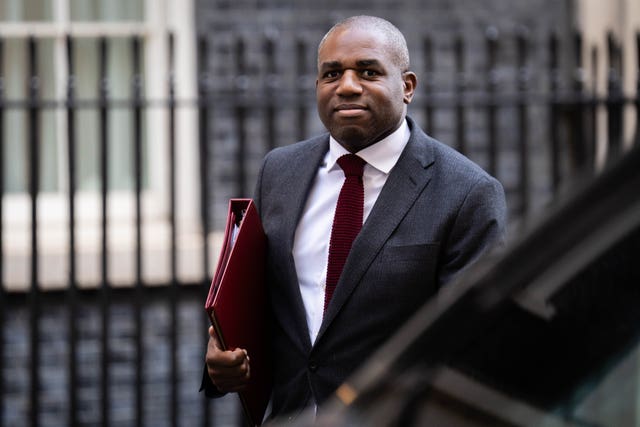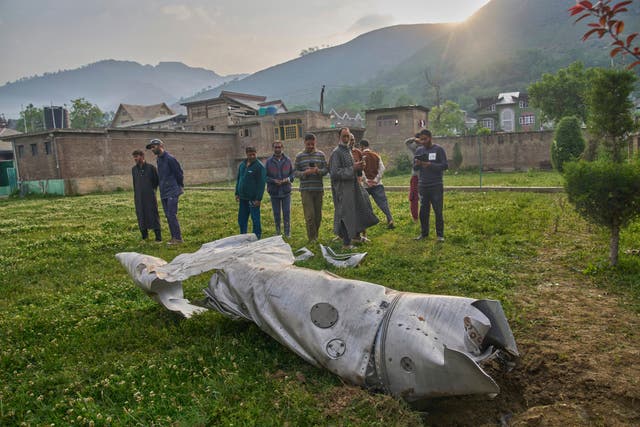UK ready to ‘support’ de-escalation after India and Pakistan exchange fire
The escalation between the two nuclear-armed powers follows last month’s massacre of tourists in the Indian-controlled portion of Kashmir.

The UK is ready to “support” India and Pakistan to de-escalate tensions following an exchange of fire over Kashmir, a Cabinet minister has said.
Officials said at least 19 people have been killed and 38 wounded after India fired missiles across the border into Pakistani-controlled territory in at least six locations overnight, while Pakistani forces are reported to have shelled Indian-controlled Kashmir.
The escalation in the conflict between the two nuclear-armed powers follows last month’s massacre of tourists in the Indian-controlled portion of Kashmir.
New Delhi has blamed Pakistan for the attack, which killed 22 people, but Islamabad has denied responsibility.
On Wednesday, Trade Secretary Jonathan Reynolds said his Cabinet colleague David Lammy had “reached out” to both nations in an effort to avoid further escalation, as had American and European figures.

Mr Reynolds told the BBC the situation in Kashmir was “hugely worrying”, adding: “Our message would be that we are a friend, a partner to both countries. We stand ready to support both countries.
“Both have a huge interest in regional stability, in dialogue, in de-escalation and anything we can do to support that, we are here and willing to do.”
Meanwhile, the Foreign Office has updated its travel advice for the region, warning against all travel within 10 kilometres of the India-Pakistan border, 10 miles of the Line of Control (the de facto border that divides disputed Kashmir between the two countries) and the Balochistan province of Pakistan.
Pakistan has also closed its airspace for at least 48 hours, with the Foreign Office advising affected Britons to contact their airline for further information.
Scotland’s First Minister John Swinney and Labour MP Stella Creasy said they were “deeply” concerned by the escalation in violence while former Tory minister Lord Ahmad warned the “potential for war tonight is real”.
Pakistani officials said the strikes hit at least two sites previously tied to banned militant groups.

One hit the Subhan Mosque in the city of Bahawalpur in Punjab, killing 13 people including a child, according to Zohaib Ahmed, a doctor at a nearby hospital.
The missiles hit six locations in Pakistan-administered Kashmir and in the country’s eastern Punjab province, said Pakistan’s military spokesperson, Lt Gen Ahmed Sharif.
The Indian army said seven civilians were killed and 30 wounded in Poonch district when Pakistani troops “resorted to arbitrary firing”, including gunfire and artillery shelling, across the Line of Control and their international border. It said it was “responding in a proportionate manner”.
Shortly after India’s strikes, aircraft fell in two villages in India-controlled Kashmir.
State-run Pakistan Television, quoting security officials, said the country’s air force shot down five Indian jets in retaliation but provided no additional detail. There was no immediate comment from India about Pakistan’s claim. Pakistan’s Foreign Affairs Ministry said Indian forces had launched the strikes from inside Indian airspace.
United Nations spokesman Stephane Dujarric said in a statement late on Tuesday that secretary-general Antonio Guterres called for maximum military restraint from both countries.
“The world cannot afford a military confrontation between India and Pakistan,” the statement read.





